

**"The Man from Nowhere"** (2010) and **"V.I.P."** (2017) share several similarities, making them both gripping South Korean thrillers:
1. **Genre and Tone**: Both films are intense action thrillers with dark, gritty atmospheres. They delve into the underworld of crime and corruption, showcasing brutal violence and high-stakes drama.
2. **Protagonists**:
The main characters in both films are driven by personal vendettas. In "The Man from Nowhere," Cha Tae-sik (portrayed by Won Bin) is a former special agent who embarks on a violent mission to rescue a kidnapped child.
In "V.I.P.," Kim Gwang-il (portrayed by Lee Jong-suk) is a North Korean defector and serial killer, pursued by a South Korean detective, a North Korean officer, and an Interpol agent.
3. **Themes**: Both movies explore themes of revenge, justice, and redemption. They highlight the lengths to which individuals will go to achieve their goals, often blurring the lines between right and wrong.
4. **Action Sequences**: Both films are known for their well-choreographed and intense action scenes. "The Man from Nowhere" features hand-to-hand combat and knife fights, while "V.I.P." includes brutal confrontations and shootouts.
5. **Emotional Depth**: Despite the violence, both films incorporate emotional elements. "The Man from Nowhere" focuses on the bond between the protagonist and the kidnapped child, adding a layer of emotional depth. "V.I.P." explores the psychological aspects of its characters, particularly the twisted mind of the serial killer.
1. **Genre and Tone**: Both films are intense action thrillers with dark, gritty atmospheres. They delve into the underworld of crime and corruption, showcasing brutal violence and high-stakes drama.
2. **Protagonists**:
The main characters in both films are driven by personal vendettas. In "The Man from Nowhere," Cha Tae-sik (portrayed by Won Bin) is a former special agent who embarks on a violent mission to rescue a kidnapped child.
In "V.I.P.," Kim Gwang-il (portrayed by Lee Jong-suk) is a North Korean defector and serial killer, pursued by a South Korean detective, a North Korean officer, and an Interpol agent.
3. **Themes**: Both movies explore themes of revenge, justice, and redemption. They highlight the lengths to which individuals will go to achieve their goals, often blurring the lines between right and wrong.
4. **Action Sequences**: Both films are known for their well-choreographed and intense action scenes. "The Man from Nowhere" features hand-to-hand combat and knife fights, while "V.I.P." includes brutal confrontations and shootouts.
5. **Emotional Depth**: Despite the violence, both films incorporate emotional elements. "The Man from Nowhere" focuses on the bond between the protagonist and the kidnapped child, adding a layer of emotional depth. "V.I.P." explores the psychological aspects of its characters, particularly the twisted mind of the serial killer.

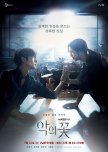
Both **"The Flower of Evil"** and **"The Man from Nowhere"** are South Korean productions that delve into themes of **hidden identities and intense emotional struggles**. In "The Flower of Evil," a man hides his dark past from his wife, who is a detective investigating a series of murders¹. Similarly, "The Man from Nowhere" follows a former special agent who conceals his violent past while embarking on a mission to rescue a kidnapped child?. Both stories feature complex characters, high-stakes action, and emotional depth, highlighting the lengths to which individuals will go to protect their loved ones and seek redemption.

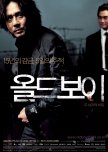
Both "Oldboy" (2003) and "The Man from Nowhere" (2010) are South Korean films that delve into themes of ‘revenge and redemption’. In "Oldboy," a man seeks vengeance after being imprisoned for 15 years without explanation, while "The Man from Nowhere" follows a former special agent who embarks on a violent quest to rescue a kidnapped child. Both films are known for their intense action sequences, complex characters, and emotional depth, highlighting the lengths to which individuals will go for justice and personal redemption.


Both "Taegukgi" (2004) and "Silmido" (2003) are South Korean films that explore the harsh realities of war and the impact on those involved. "Taegukgi" follows two brothers drafted into the Korean War, highlighting their struggle for survival and the emotional toll of combat. Similarly, "Silmido" tells the story of a group of convicts trained for a secret mission during a tense period in Korean history, focusing on their camaraderie and the brutal conditions they endure. Both films emphasize themes of brotherhood, sacrifice, and the psychological effects of war on individuals.


Both "Taegukgi" (2004) and "Gyeongseong Creature" (2023) are South Korean productions set against significant historical backdrops. "Taegukgi" is set during the Korean War and follows two brothers drafted into the conflict, highlighting their struggle for survival. Similarly, "Gyeongseong Creature" is set in 1945 during the Japanese occupation of Korea and features characters battling a supernatural creature born out of greed. Both stories are known for their emotional intensity, complex characters, and high-stakes action, capturing the characters' resilience and sacrifices amidst chaos and conflict.
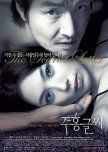
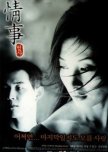
The emotional and moral complications of extramarital relationships are explored towards both the films.
In the film "The Scarlet Letter," a detective's extramarital romance causes significant emotional upheaval and disrupts both his personal and professional life. Comparably, the plot of "An Affair" centers on a lady who develops a secretive and morally dubious relationship with her sister's fiance after falling in love with him. Exploring the fallout from adultery, both movies highlight the individuals' moral quandaries and intense emotional toll.
In the film "The Scarlet Letter," a detective's extramarital romance causes significant emotional upheaval and disrupts both his personal and professional life. Comparably, the plot of "An Affair" centers on a lady who develops a secretive and morally dubious relationship with her sister's fiance after falling in love with him. Exploring the fallout from adultery, both movies highlight the individuals' moral quandaries and intense emotional toll.


Both "The Scarlet Letter" (2004) and "April Snow" (2005) are South Korean films that delve into the emotional complexities of infidelity and its impact on relationships. In "The Scarlet Letter," a detective's affair with his mistress complicates his life as he investigates a murder. Similarly, "April Snow" follows two people who discover their spouses are having an affair and find solace in each other. Both films are known for their intense emotional scenes and complex characters, highlighting the far-reaching consequences of betrayal and the moral dilemmas faced by those involved.


Both **"The Scarlet Letter" (2004)** and **"The World of the Married" (2020)** are South Korean dramas that delve into the dark and complex themes of **infidelity, betrayal, and the consequences of extramarital affairs**. Here are some key similarities:
1. **Themes of Infidelity and Betrayal**: Both stories center around the devastating impact of infidelity on relationships and the emotional turmoil it causes for all parties involved.
2. **Complex Characters**: The characters (Lee Eun-ju and Han So -hee) in both dramas are multi-dimensional, with deep psychological complexities that drive their actions and decisions.
3. **Emotional Intensity**: Both dramas are known for their intense emotional scenes, capturing the raw and often painful emotions experienced by the characters.
4. **Consequences of Actions**: Both the Main male leads explore the far-reaching consequences of betrayal, not just on the individuals directly involved, but also on their families and social circles.
1. **Themes of Infidelity and Betrayal**: Both stories center around the devastating impact of infidelity on relationships and the emotional turmoil it causes for all parties involved.
2. **Complex Characters**: The characters (Lee Eun-ju and Han So -hee) in both dramas are multi-dimensional, with deep psychological complexities that drive their actions and decisions.
3. **Emotional Intensity**: Both dramas are known for their intense emotional scenes, capturing the raw and often painful emotions experienced by the characters.
4. **Consequences of Actions**: Both the Main male leads explore the far-reaching consequences of betrayal, not just on the individuals directly involved, but also on their families and social circles.

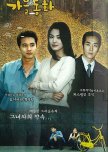
Both "Autumn in My Heart" and "20th Century Girl" are South Korean romantic dramas that delve into the emotional intricacies of love and relationships. They share several similarities:
1. **Themes of Love and Sacrifice**: Both explores deep, heartfelt love stories where characters often face significant sacrifices for the sake of their loved ones.
2. **Emotional Depth**: Both stories has their emotional storytelling, evoking strong feelings from the audience through poignant and touching moments. They also has major character deaths that is just too sad to watch.
3. **Friendship and Loyalty**: Both stories highlight the importance of friendship and loyalty, showcasing how these bonds influence the characters' lives and decisions.
4. **Nostalgic Elements**: "20th Century Girl" has a nostalgic feel as it is set in the late 1990s, while "Autumn in My Heart" also evokes nostalgia through its timeless love story and classic drama elements during its time.
5. **Character Development**: Both dramas focus on the growth and development of their characters, allowing viewers to connect deeply with their journeys.
1. **Themes of Love and Sacrifice**: Both explores deep, heartfelt love stories where characters often face significant sacrifices for the sake of their loved ones.
2. **Emotional Depth**: Both stories has their emotional storytelling, evoking strong feelings from the audience through poignant and touching moments. They also has major character deaths that is just too sad to watch.
3. **Friendship and Loyalty**: Both stories highlight the importance of friendship and loyalty, showcasing how these bonds influence the characters' lives and decisions.
4. **Nostalgic Elements**: "20th Century Girl" has a nostalgic feel as it is set in the late 1990s, while "Autumn in My Heart" also evokes nostalgia through its timeless love story and classic drama elements during its time.
5. **Character Development**: Both dramas focus on the growth and development of their characters, allowing viewers to connect deeply with their journeys.


Sure, here are some sentences highlighting the similarities between "Revenge of Others" and "The K2":
1. **Revenge-Driven Plot**: Both "Revenge of Others" and "The K2" center around protagonists who are driven by a desire for revenge against those who have wronged them.
2. **Action Sequences**: Both dramas are known for their intense and thrilling action sequences that keep viewers on the edge of their seats.
3. **Strong Female Characters**: Each series features strong female leads who play pivotal roles in the storyline and contribute significantly to the plot's progression.
4. **Complex Characters**: The characters in both dramas are complex, with deep backstories and motivations that add layers to the narrative.
5. **Themes of Betrayal and Justice**: Both shows explore themes of betrayal and the quest for justice, as the protagonists navigate through dangerous and morally ambiguous situations.
1. **Revenge-Driven Plot**: Both "Revenge of Others" and "The K2" center around protagonists who are driven by a desire for revenge against those who have wronged them.
2. **Action Sequences**: Both dramas are known for their intense and thrilling action sequences that keep viewers on the edge of their seats.
3. **Strong Female Characters**: Each series features strong female leads who play pivotal roles in the storyline and contribute significantly to the plot's progression.
4. **Complex Characters**: The characters in both dramas are complex, with deep backstories and motivations that add layers to the narrative.
5. **Themes of Betrayal and Justice**: Both shows explore themes of betrayal and the quest for justice, as the protagonists navigate through dangerous and morally ambiguous situations.


"The Penthouse: War In Life" and "Revenge of Others" share similarities in their themes of business, revenge, and complex relationships. Here's a brief overview of each:
1. "The Penthouse: War In Life":
- **Genre**: Drama, Mystery
- **Plot**: The series revolves around wealthy families residing in the prestigious Hera Palace apartment building. It delves into their luxurious lives, power struggles, and dark secrets¹.
- **Similarities**:
- **Business**: Both dramas involve characters from affluent backgrounds, dealing with business intrigues and power dynamics.
- **Revenge**: Revenge plays a significant role in both series. Betrayals lead to a whirlwind of revenge, grief, forgiveness, and healing.
- **Complex Relationships**: The characters' relationships are multifaceted, with hidden motives and secrets.
2. "Revenge of Others":
- **Plot**: The story revolves around a married couple whose betrayal of each other sets off a chain of revenge, grief, and eventual healing³.
- **Similarities**:
- **Revenge**: As the title suggests, revenge is a central theme. Characters seek retribution for past wrongs.
- **Betrayal**: Both dramas explore betrayal within relationships, leading to emotional turmoil.
While “The Penthouse” leans more toward adult themes, both shows offer mystery, intensity, and unexpected twists.
1. "The Penthouse: War In Life":
- **Genre**: Drama, Mystery
- **Plot**: The series revolves around wealthy families residing in the prestigious Hera Palace apartment building. It delves into their luxurious lives, power struggles, and dark secrets¹.
- **Similarities**:
- **Business**: Both dramas involve characters from affluent backgrounds, dealing with business intrigues and power dynamics.
- **Revenge**: Revenge plays a significant role in both series. Betrayals lead to a whirlwind of revenge, grief, forgiveness, and healing.
- **Complex Relationships**: The characters' relationships are multifaceted, with hidden motives and secrets.
2. "Revenge of Others":
- **Plot**: The story revolves around a married couple whose betrayal of each other sets off a chain of revenge, grief, and eventual healing³.
- **Similarities**:
- **Revenge**: As the title suggests, revenge is a central theme. Characters seek retribution for past wrongs.
- **Betrayal**: Both dramas explore betrayal within relationships, leading to emotional turmoil.
While “The Penthouse” leans more toward adult themes, both shows offer mystery, intensity, and unexpected twists.


"Revenge of Others" and "Pyramid Game" share thematic similarities, particularly in their high school settings and exploration of serious themes. Here's how they align:
1. **High School Setting**:
- Both dramas take place in high schools, providing a backdrop for their intense narratives ¹².
- In "Revenge of Others," the story revolves around Ok Chan Mi and Ji Soo Heon, who seek revenge and justice within their school environment .
- "Pyramid Game" focuses on a group of high school students entangled in a dangerous ranking game that leads to violence .
2. **Themes of Violence and Struggle**:
- "Revenge of Others" delves into bullying, revenge, and survival .
- Similarly, "Pyramid Game" portrays psychological warfare among students as they play a popularity voting game to avoid becoming targets of violence.
While their execution and specific plots differ, both dramas engage viewers with intense situations and character-driven stories.
1. **High School Setting**:
- Both dramas take place in high schools, providing a backdrop for their intense narratives ¹².
- In "Revenge of Others," the story revolves around Ok Chan Mi and Ji Soo Heon, who seek revenge and justice within their school environment .
- "Pyramid Game" focuses on a group of high school students entangled in a dangerous ranking game that leads to violence .
2. **Themes of Violence and Struggle**:
- "Revenge of Others" delves into bullying, revenge, and survival .
- Similarly, "Pyramid Game" portrays psychological warfare among students as they play a popularity voting game to avoid becoming targets of violence.
While their execution and specific plots differ, both dramas engage viewers with intense situations and character-driven stories.












